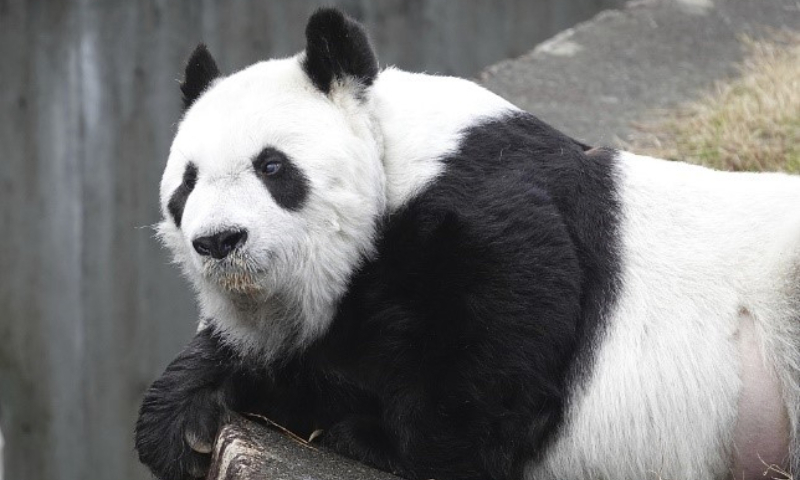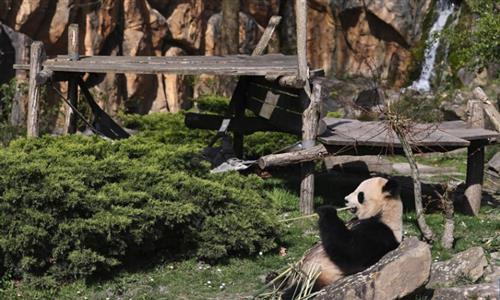
Giant panda Shuangshuang Photo: VCG
The female giant panda Shuangshuang, residing at Japan's Kobe Oji Zoo, died on Sunday after suffering from severe heart disease for many years, according to China Wildlife Conservation Association's WeChat account on Monday.
According to the statement, Shuangshuang's condition had continued to deteriorate and the animal had begun to refuse to eat since March, even rejecting water and experiencing convulsions and other symptoms. Chinese and Japanese experts continued to implement all necessary rescue measures, but the animal was unable to be saved.
Shuangshuang was born in 1995, and arrived at Kobe Oji Zoo in Japan in 2000 for the purpose of jointly cooperative research between China and Japan on the international conservation of giant pandas, according to the release. Experts explained that a 29-year-old giant panda is equivalent to a nearly 100-year-old person.
Shuangshuang was diagnosed with senile heart disease during a routine examination in 2021. The Chinese and Japanese sides quickly organized a team of specialists to provide joint diagnosis, treatment and careful care, and the condition of Shuangshuang was relieved to a certain extent at that time.
According to the release, Chinese and Japanese sides also formulated a strict treatment plan. Both sides postponed the deadline for Shuangshuang's return to China on multiple occasions to prevent deterioration of her condition due to the long-distance transportation and the global pandemic, following the expiration of the giant panda cooperation agreement in 2020.
Chinese and Japanese sides will appropriately handle the body of Shuangshuang in strict accordance with the provisions of the cooperation agreement. Shuangshuang will be returned to China at the right time after specialized treatment.
Global Times

